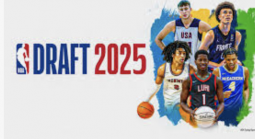Tribes Invoke New SB 549, File Lawsuit Against Cardrooms Over ‘House-Banked’ Games
Two dominant California tribes have begun legal strikes against multiple in-state card rooms under the new SB 549 law, filing a lawsuit over the supposed “house-banked” games. The tribes argue that these games, including blackjack-style playoffs, violate the exclusivity rights backed by the Constitution. The Agua Caliente Band of Cahuilla Indians and the Yocha Dehe Wintun Nation filed the lawsuits in May, possibly changing the future of California’s gambling.
These legal strikes may also impact online gambling from platforms offering similar games, often with attractive bonuses. The center of the dispute encourages everyone to question what banked games actually are, and what defines the “bank.” Discover current developments and the potential impact.
Online Gambling May Have Ignited the Initial Retaliation
The lawsuit more specifically targets brick-and-mortar casinos, but online casinos offering similar games may have driven some momentum behind the initial SB 549 law. California doesn’t allow in-state online casinos, but licensed offshore platforms have become a regular entertainment destination for Californians.
An attractive online casino bonus tied to blackjack-style games without waiting periods and mobile convenience certainly challenges tribal leaders. Casino expert Wilna van Wyk claims that the bonuses attract large numbers of Californians because of the broad range of options available, including sign-up, welcome, no-deposit, free spins, and reload bonuses. Traditional casinos can’t match these bonus features. Neither can most card rooms.
Some believe that the popularity of these bonus-rich platforms with similar games has contributed to the tribe's aggressive rights pursuits. Tribal casinos see these platforms as threats because they cut into their revenues, but they should perhaps look for ways to compete with the incredible bonus structures and offerings instead.
Are Card Rooms and Third-Party Players Legal?
California law prohibits non-tribal operators from running house-banked gaming, which means that games like baccarat and blackjack should remain within tribal casinos. This led to legal battles earlier in the year. Card rooms have, however, found a way to work around the law, using third-party proposition player services (TPPPS), which act like a banker. These persons aren’t actually part of the card room but are licensed in California to sit in as players who cover bets like the house would.
Tribes have called the TPPPS system a sham for years. They argue that outsourcing bank positions to a TPPPS provider or rotating the banker’s position on paper can’t change the core elements of a game.
The SB 549 Gaming: Tribunal Nations Access to Justice Act now empowers tribes to sue TPPPS operators and card rooms if they believe their gaming rights were infringed. The tribes no longer have to wait for the state to enforce the law. Meanwhile, the card rooms say they’re in compliance with regulatory guidelines, with many named card rooms in the Southern California region and the Central Valley. Still, the tribes believe banked games should remain off-limits for commercial card rooms in California.
Some Municipalities Defend Card Rooms
The looming lawsuit won’t only impact card rooms. Various city governments watch closely from San Jose, Commerce, and Bell Gardens, where card rooms have become some of the largest private employers in the region. These card rooms also generate millions of dollars annually to support local services and infrastructure. Many officials in different municipalities have already defended the card rooms, claiming that the law threatens stable tax revenues.
The impact could be particularly painful for smaller communities, with some city budgets depending on card room revenue and elected officials warning that closed card rooms could lead to budget cuts.
Still, the tribal leaders state that the law and other long-standing compacts signed by the state should remain a priority. The different compacts developed an economic and legal handbook for tribes to provide exclusive access to specific gaming types, which some regions have used to fund housing, healthcare, and education programs. The tribes claim that cities should push for legal clarity over the violation of existing agreements.
Game Types at Risk of Tribal Enforcement
A house-banked game describes multiple types of casino games. Card rooms offering blackjack aren’t the only issue. The definition of banking games refers to any game where a dealer or banker takes wagers from multiple players and pays out winnings to a winning hand while keeping the losses in a bank of chips or money. Other house-banked games include poker and roulette.
California card rooms even expanded into different variations, with some including Pai Gow poker and California-style blackjack. These games have become major highlights in card rooms that would otherwise only attract a few players with one-on-one poker.
Card rooms may have to heavily alter the games or remove them entirely if the courts rule in the tribe’s favor. The competitive environment between tribal casinos and card rooms may change dramatically as the two have previously operated under different regulations. Constant lawsuits, growing legal fees, and tighter regulatory guidelines may eventually squeeze the commercial card rooms and games out of the state.
What the Future Holds for Card Rooms in California
The SB 549 law only took effect this year, but there’s a reason why it matters now. The law doesn’t give tribes more rights. It simply allows them to enforce their previous rights, which opens courtroom doors after years of waiting for stricter regulatory oversight. The California Gambling Control Commission issued card rooms with guidelines but rarely enforced them.
The tribes have taken the matter into their own hands after the state showed reluctance to choose sides. The momentum could build fast, with other tribes already preparing lawsuits. Some are watching the current cases as a litmus test. A domino effect could take place if the courts rule in favor of the tribes, but that would close down many revenue-stimulating card rooms and drive more players to online casinos that operate under offshore licenses.
Besides, people feel more reluctant to visit brick-and-mortar casinos with headlines like “Shooting outside Bellagio live streamed on YouTube.” Card rooms are more intimate, while online casinos are more convenient and offer at-home games similar to those the tribes wish to make exclusive to them.
California’s card rooms have also operated within a legal gray area for years, using third-party bankers who encouraged tribes to challenge their operations. Both sides believed they were on solid footing as there was never a definitive answer from the courts. However, the SB 549 law may change that, allowing tribes to file suit without contributions from the regulatory boards. Whether that’s good for local revenue is yet to be seen, and it may simply push more Californians to online platforms for convenience, bonuses, and freedom.














